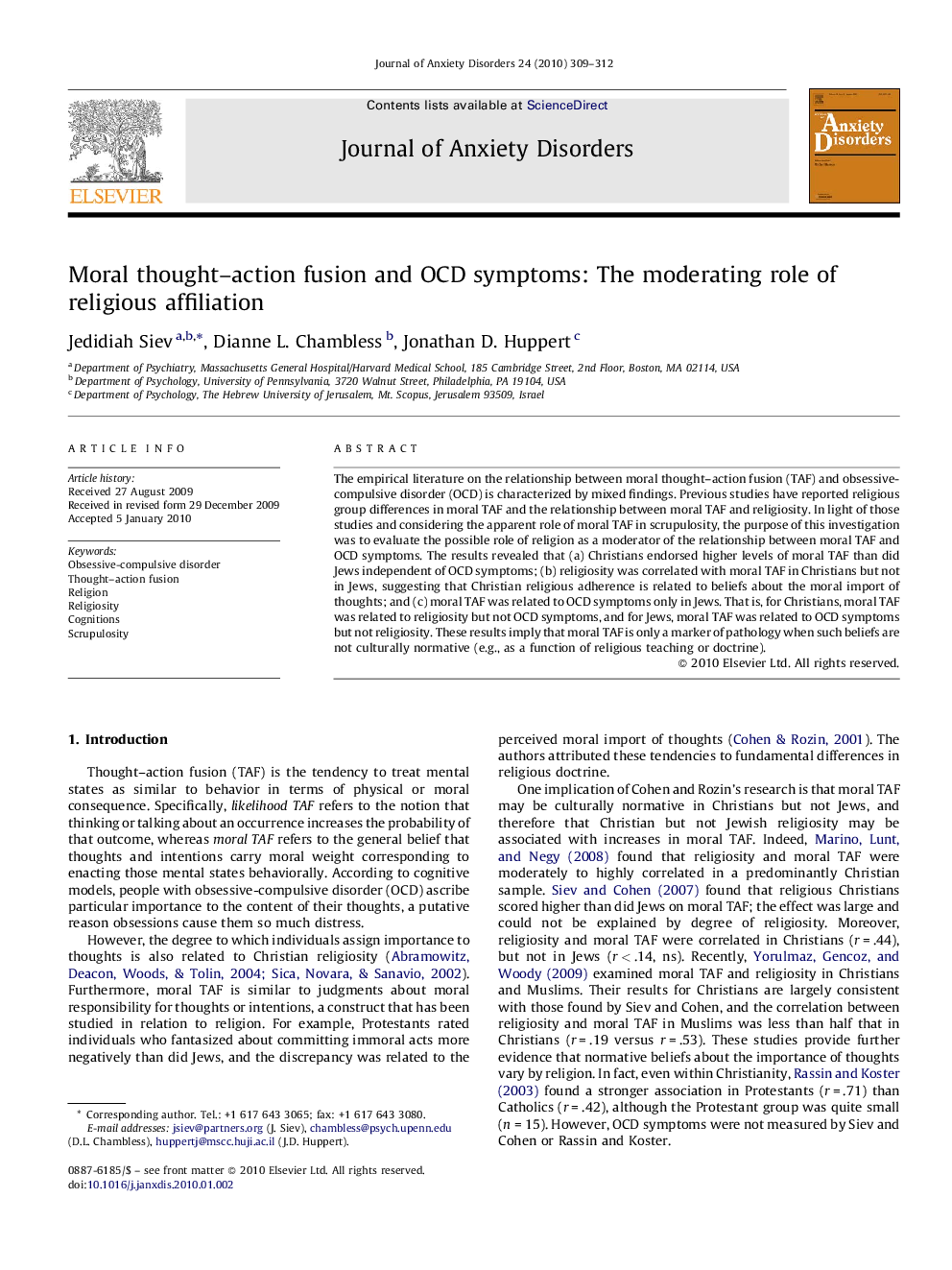| Article ID | Journal | Published Year | Pages | File Type |
|---|---|---|---|---|
| 909913 | Journal of Anxiety Disorders | 2010 | 4 Pages |
The empirical literature on the relationship between moral thought–action fusion (TAF) and obsessive-compulsive disorder (OCD) is characterized by mixed findings. Previous studies have reported religious group differences in moral TAF and the relationship between moral TAF and religiosity. In light of those studies and considering the apparent role of moral TAF in scrupulosity, the purpose of this investigation was to evaluate the possible role of religion as a moderator of the relationship between moral TAF and OCD symptoms. The results revealed that (a) Christians endorsed higher levels of moral TAF than did Jews independent of OCD symptoms; (b) religiosity was correlated with moral TAF in Christians but not in Jews, suggesting that Christian religious adherence is related to beliefs about the moral import of thoughts; and (c) moral TAF was related to OCD symptoms only in Jews. That is, for Christians, moral TAF was related to religiosity but not OCD symptoms, and for Jews, moral TAF was related to OCD symptoms but not religiosity. These results imply that moral TAF is only a marker of pathology when such beliefs are not culturally normative (e.g., as a function of religious teaching or doctrine).
